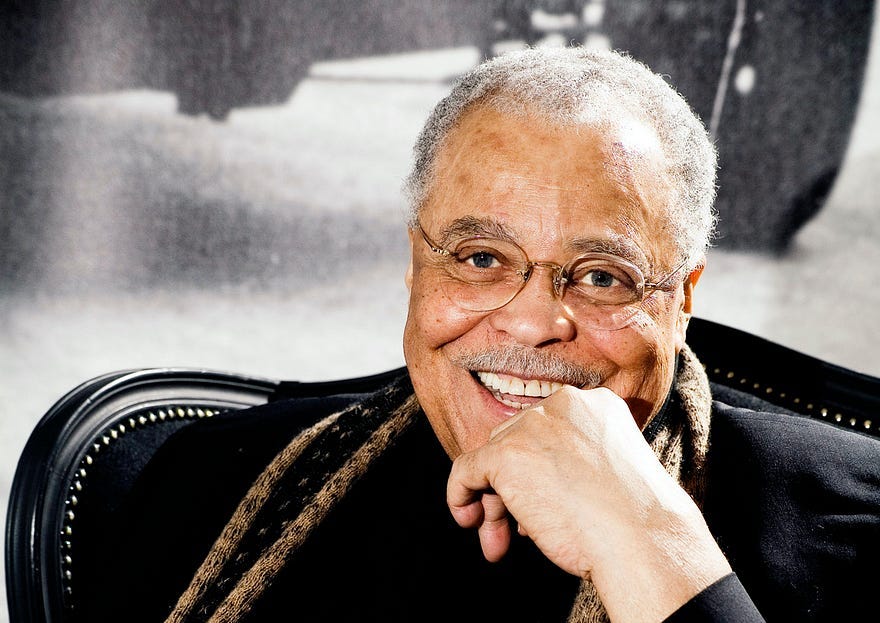All Things in Moderation? Here’s a Better Idea.
Plus: Hormone replacement therapy deserves a second look
Welcome to our many new subscribers. This newsletter—your weekly dose of wisdom and wellness—provides “friend links” to our articles on Medium, giving you full access to all the articles, even if you’re not a Medium member. If you are a Medium member, you can subscribe to the Medium version of this newsletter instead.
There are several great stories to talk about this week, so let’s dive in, starting with my newsletter-only (and hopefully thought-provoking) musings about moderation…

I claim to be a fan of the idiom all things in moderation. I tell myself I am. I’ve written it into my health articles numerous times. But all things? Seems a little much. And moderation? Why, when something is healthy, wonderful and harmless, would we want to dose it moderately?
My behavioral shortcomings reveal that don’t adhere to the idiom very well anyway. I drink too much sometimes. I can’t retake up jogging without setting a race goal that results in yet another chronic injury. I often get so focused on writing I forget to eat breakfast. When I get overloaded, I’m prone to doing absolutely nothing for an entire day. And like any red-blooded American, if I find a good series on Netflix, I binge.
So I’m rethinking everything in moderation. I believe it’s more honest, and probably better for overall well-being, to live by a new idiom: good health and pleasure too.
What do you say? Do you have few words that serve as your life’s North Star? The comments are open, and I’d love your take.
All this came to mind as I edited one of my favorite stories this week on Wise & Well:
The Wellness Trap: Trading Life’s Pleasures for Perfect Health
Dispirited to discover he’s put on some weight, this author is “back on the treadmill for high-intensity interval training and starving myself.” Fresh intentions come with a cost however, discussed in depth in his thought-provoking essay about “the conundrum of living boringly and forever, or living riotously and dying young.”
I sense it’s an unresolved tension at the heart of our culture. We want to be healthy so we can live longer and live well. But, as James Bond said in The World Is Not Enough (1999), “There’s no point living if you can’t feel alive.” So we oscillate between the two, never quite sure where to draw the line. Moderation, after all, is its own sort of hell.
— Niall Stewart
Here’s what one Medium reader had to say about Niall’s story:
In the pursuit of perfect health, it’s easy to lose sight of the joys and simple pleasures that make life meaningful. Balance is key — wellness shouldn’t come at the expense of happiness or spontaneity. It’s important to nurture our bodies and minds while still allowing ourselves to enjoy the richness of life without guilt.
— Iqra Irfan
Hormone Replacement Therapy Changed My Life
Largely thanks to a 22-year-old study that reflected badly on hormone replacement therapy, some doctors are reluctant to discuss it, let alone prescribe it, for women going through menopause. So now, women who would benefit from HRT — which has been refined and improved — suffer needlessly with anxiety, depression, and mood swings for years. This writer, a nurse, has seen it all, and she’s got strong views on the subject.
It’s not in your head. Hormone imbalances in menopause are linked to anxiety, mood swings, and depression, but women don’t need to meekly accept mental suffering as part of menopause. Hormone replacement therapy might be the key to getting your even keel back — but does your doctor know that?
—Andrea Romeo RN, BN
Andrea goes on to explain numerous myths about HRT, and how to advocate for yourself.
I Was Wrong about Protein Supplements
Health experts have long told us we can get most or all the nutrients we need from real, regular food. It’s great advice. Except when it’s not. As we age, we absorb protein less effectively, so we need more of it to maintain strength—not body-builder muscles, just the strength to get out of a chair or lift a cast-iron pan. This dietitian and nutrition scientist has studied the latest research, concluding that certain protein supplements can make sense, especially for someone trying to avoid meat or other protein-rich food.
If you are 40 and older, you need to eat more protein to build the same amount of muscle as someone in their 20s, but you also need to eat fewer total calories each day. Protein supplements can help achieve both goals. But some protein types work better than others when it comes to building and maintaining muscle.
—Mandy Willig, PhD, RD
What Therapists Don’t Get About Neurodivergent Clients
The writer, who has autism and ADHD, knows well how little many therapists know about her conditions. Advice often revolves around a “just try harder” and “let things go” approach, which goes against the very grain of neurodivergent individuals. Here she dives deep into what goes wrong in therapy, and what real experts say needs to happen to achieve the main goal: help neurodivergent clients accept their authentic selves.
Unfortunately, most therapists are not experts in ADHD or autism, and the training they’ve received is usually based on outdated research and misconceptions, according to an analysis published in International Journal of Social Psychology. When I read the accounts of neurodivergent folks sharing what they wished therapists could know about them, based on their therapy experiences, I discovered I was not alone in my less than stellar reviews of my therapists.
— Morgan Khalsa
The New, Relaxed Model of Masculinity
Many men are now comfortable taking on more domestic chores and even playing second fiddle to women who break all sorts of glass ceilings. Doug Emhoff and Tim Walz come to mind. Other men, however, still think women are “incapable of much beyond a bake sale,” this writer contends. The sentiments tend to reflect political leanings, striking a discordant note in America’s culture and politics.
Asked what instrument is the most difficult to play, the famous conductor Leonard Bernstein replied, “The second fiddle. I can get plenty of first violinists, but to find someone who can plan the second fiddle with enthusiasm — that’s a problem. And if we have no second fiddle, we have no harmony.”
— Kathleen Murphy

What James Earl Jones Can Teach Us About Human Resilience and the Importance of Purpose
When your dad leaves when you’re born, and your mom abandons you at age 5, and you’re raised by a racist grandmother… it’s enough trauma to make you stutter, and the embarrassment of that might make you go mute.
That’s the story of the man who voiced Darth Vader and Mustafa and acted in more than 100 movies and countless TV shows and dozens of stage plays. It’s a story of misfortune and resilience, of grit and determination, of purpose and joy born from emotional turmoil. Learn how he used it all to become the greatest voice actor ever.
Jones’ story is a tale of triumph over tragedy. Willpower over misfortune. It’s an inspirational reminder that we humans are more resilient than we know.
—Robert Roy Britt
The Biggest Mistake People Make When Buying Presents
We know from many studies that experiences bring more sustained happiness than stuff. So in her weekly “How to Feel Better” post, this psychologist and author argues we should apply the same logic to gifts.
Spending money on an expensive car, watch, or shoes… only has a fleeting impact on happiness. Spending money on experiences feels so good in part because of the power of anticipation.
—Catherine Sanderson
Plus, from our sister publication, Aha! Science…
The Many Surprising Things Your Fingernails Can Tell You
Our resident dermatologist explains more than a handful of diseases, conditions and even past experiences that can be revealed by a detailed look at fingernails. This isn’t hocus-pocus palm reading. This is serious science. We’re talking stress, nutritional deficiencies, liver disease—even trips to space. What?!
Whether you keep your nails long or short, painted or plain, keep an eye on them for clues to your underlying health, and see a physician with any concerning changes.
—Annie Foley
Annie goes on to explain how to best care for your nails, of course.
That’s all this week (whew!) I hope we’ve helped you make tomorrow a little better than today.
Cheers,
Rob




